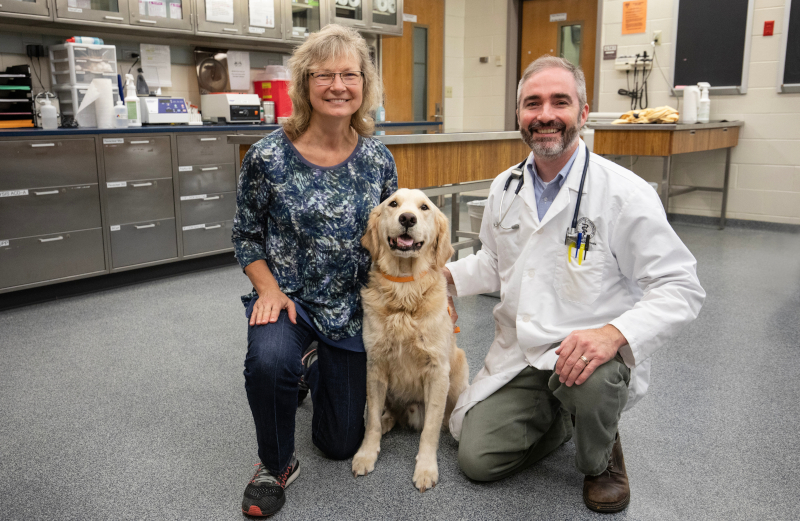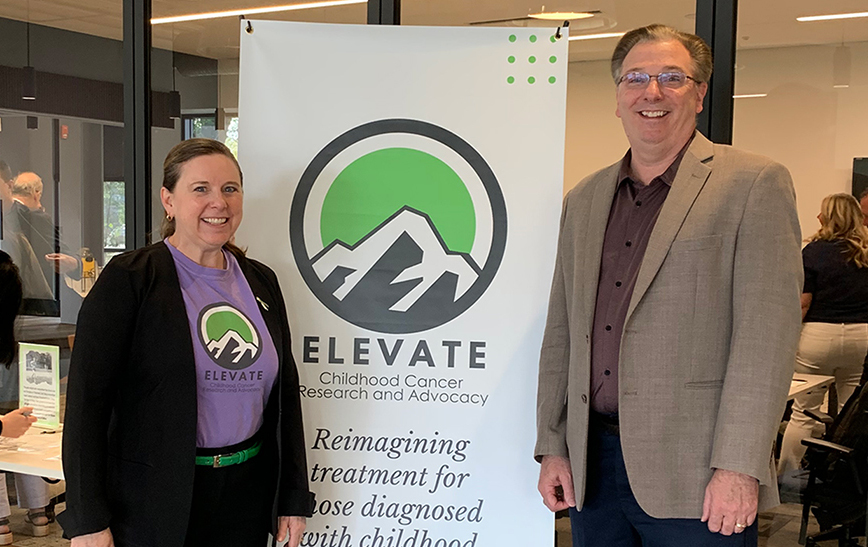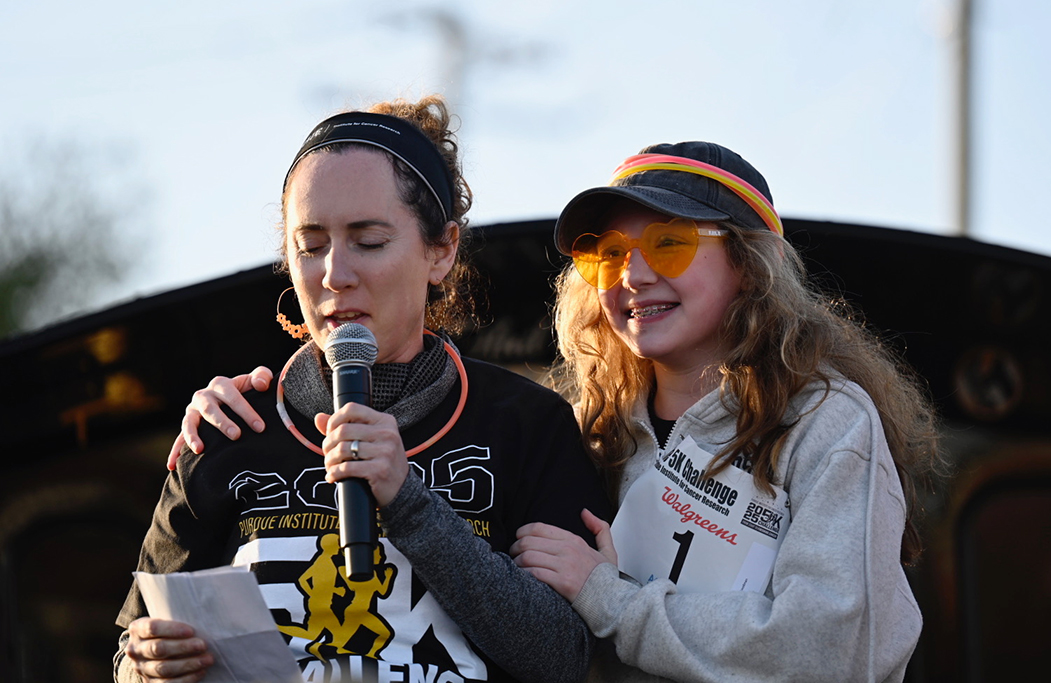impact area
PEDIATRIC & RARE CANCERS
Bringing hope to the youngest and most unique cancer patients, the Purdue Institute for Cancer Research (PICR) is pursuing research to drive new discoveries in the complex biology of childhood and rare cancers.

expanding hope
Innovating solutions for some of cancer’s most unique and complex cases
Often characterized by their low incidence rates and high complexity, pediatric and rare cancers require innovative approaches for expanding our understanding of the genetics, biology, and biochemistry driving cancers in these patients. Through the acquisition of new fundamental knowledge, PICR scientists can then develop novel diagnostic capabilities and treatment options. Purdue Institute for Cancer Research scientists leverage interdisciplinary expertise and advanced technologies to improve outcomes for patients with these difficult-to-treat cancers.

Every person, every diagnosis
We believe that no patient is too young, and no diagnosis is too rare to merit attention for research. Several of our researchers pursue knowledge on understudied cancers. By advancing foundational discoveries, we aim to expand options and hope for those too often overlooked. You can help drive this work forward by supporting research that brings new possibilities to every person patient, no matter the diagnosis.

Tyler Trent Pediatric Cancer Research Center
Tyler Trent and the center named in his honor
The Tyler Trent Pediatric Cancer Research Center was formed in 2023 within the PICR to expand Purdue’s research into childhood cancers. One of the center’s research focus areas is dedicated to understanding osteosarcoma, a rare form of bone cancer that primarily affects children. This research honors the memory of Tyler Trent, a Purdue student and “superfan.”
A focus on osteosarcoma
Osteosarcoma is the most common type of bone cancer in children and young adults, though it remains rare overall. The standard of care, which is a combination of surgery and chemotherapy, has not fundamentally changed in decades, highlighting the need for more effective therapies.
Scientists at the PICR are fighting osteosarcoma through innovations in targeted therapies — new drugs that attack proteins specifically involved in promoting the disease — and advanced immunotherapies, such as next-generation CAR T-cell treatments.
The goal is innovative treatments specifically for osteosarcoma and other rare cancers that improve drug-delivery precision and reduce harmful side effects. PICR’s research comes from a variety of fundamental fields, including comparative veterinary medicine, studying osteosarcoma in dogs to gain insights that could benefit both pets and people.

Powering progress through cross-species research
Dr. Michael Childress, professor of comparative oncology, PICR member and researcher in the Tyler Trent Pediatric Cancer Research Center, is leading research on osteosarcoma. He is developing a prospective drug therapy that targets a specific protein driving the progression of osteosarcoma and other cancers in both dogs and humans. By focusing on fundamental cancer mechanisms, his work has the potential to improve outcomes for pediatric patients and advance therapies across multiple cancer types.
Advancing cancer treatment
PICR researchers are rethinking how cancer is treated, from identifying new molecular targets to designing smarter therapies and improving how drugs reach tumors.
PICR scientists are identifying molecular targets, such as proteins that drive tumor growth, to inform the next generation of cancer drugs. Research on osteosarcoma and other hard-to-treat cancers is uncovering new ways to stop cancer progression, paving the way for therapies that are more precise and less toxic.
By investigating genetic mutations, cell signaling and the tumor microenvironment, researchers are revealing how cancers form, spread and resist treatment. These discoveries provide the foundation for developing therapies designed to exploit cancer cell vulnerabilities while sparing healthy tissue.
PICR researchers are advancing technologies that improve how cancer drugs reach tumors, including nanoparticle-based delivery systems that target cancer cells more accurately. These innovations aim to increase drug effectiveness, reduce side effects and open the door to entirely new treatment approaches.
a collective fight
It takes a village to protect our community
The Purdue Institute for Cancer Research and the Tyler Trent Pediatric Cancer Research Center engage with patients, families, advocacy groups, the Boilermaker community and beyond to raise awareness of and support for critical cancer research.
YOU CAN MAKE A DIFFERENCE
Partner with Purdue to advance research in pediatric and rare cancers.
Contact Us
Get in touch
Phone: 765-494-9129
Fax: 765-494-9193
Email: cancerresearch@purdue.edu
Meet our team
Find us
201 S. University St.
Hansen Life Sciences Bldg, Rm. 141
West Lafayette, IN 47907

